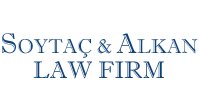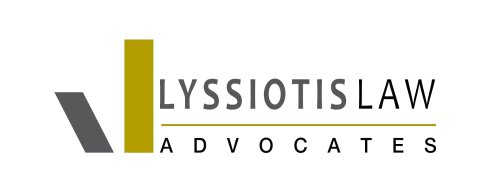Best Corporate Governance Lawyers in Nicosia
Share your needs with us, get contacted by law firms.
Free. Takes 2 min.
List of the best lawyers in Nicosia, Cyprus
About Corporate Governance Law in Nicosia, Cyprus
Corporate Governance refers to the system of rules, practices, and processes by which companies are directed and controlled. In Nicosia, Cyprus, Corporate Governance law sets out the framework for effective management and oversight of companies, addressing the relationships between shareholders, management, and the board of directors. The main purpose is to ensure companies act responsibly, remain compliant with regulations, and operate transparently. Cyprus, as a member state of the European Union, incorporates both local and EU-wide requirements in its approach to Corporate Governance, making it essential for businesses to stay informed and compliant.
Why You May Need a Lawyer
Legal expertise is often required in Corporate Governance for a variety of reasons. For company founders, legal guidance can help structure the company in compliance with both local and international laws. Board members or shareholders may require legal advice to resolve internal disputes, handle compliance matters, or manage risk. Lawyers are also essential when navigating regulatory investigations, mergers and acquisitions, director liability concerns, or shareholder rights. For foreign investors or international businesses operating in Nicosia, local legal knowledge helps ensure proper adaptation to Cypriot and EU standards and prevents costly legal mistakes.
Local Laws Overview
Corporate Governance in Nicosia, and Cyprus generally, is governed primarily by the Companies Law, Cap. 113, alongside various regulatory frameworks imposed by competent authorities such as the Cyprus Securities and Exchange Commission. The core laws address the establishment of companies, duties of directors, shareholder rights, reporting obligations, annual general meetings, and conflict of interest rules. Organizations listed on the Cyprus Stock Exchange must also comply with the Corporate Governance Code and additional transparency and disclosure requirements. Recent updates have aligned Cypriot law with EU directives, particularly around anti-money laundering, data protection, and cross-border company regulation. Understanding these local and international obligations is key for any business operating in Nicosia.
Frequently Asked Questions
What is Corporate Governance?
Corporate Governance is the system by which companies are controlled and directed, encompassing rules and processes that guide corporate structure, conduct, and accountability.
Why is Corporate Governance important in Cyprus?
Effective Corporate Governance helps maintain investor confidence, ensures legal compliance, prevents fraud or mismanagement, and attracts foreign investment into Cyprus.
Which laws govern Corporate Governance in Nicosia?
The principal law is the Companies Law, Cap. 113, complemented by regulatory guidance from the Cyprus Securities and Exchange Commission and compliance with relevant EU directives.
What are directors’ main duties under Cypriot law?
Directors must act in the best interests of the company, avoid conflicts of interest, maintain confidentiality, and perform their duties with due skill and care.
How often must companies hold general meetings?
Generally, companies must hold an Annual General Meeting (AGM) each year, within 18 months of incorporation and not more than 15 months between subsequent AGMs.
What are the reporting and disclosure obligations?
Companies are required to maintain proper accounting records, submit annual returns, and file financial statements with the Registrar of Companies. Public companies face additional disclosure requirements.
What are the penalties for non-compliance with Corporate Governance laws?
Penalties can range from administrative fines and remedial instructions to criminal liability and company dissolution, depending on the severity of the violation.
Are there specific rules for listed companies?
Yes, companies listed on the Cyprus Stock Exchange must comply with the Corporate Governance Code, which imposes extra requirements regarding transparency, board composition, and shareholder engagement.
Can a foreign business director in Nicosia be held liable for Corporate Governance breaches?
Yes, directors, regardless of nationality, can be held legally accountable for failing to meet local Corporate Governance standards or causing company loss through negligence or fraud.
How can a lawyer help with Corporate Governance issues?
A lawyer can advise on regulatory compliance, draft or review governance documents, represent parties in disputes, manage investigations, and offer training for effective Corporate Governance practices.
Additional Resources
For further guidance on Corporate Governance in Nicosia, the following resources and institutions may be useful:
- Cyprus Securities and Exchange Commission - Regulatory body supervising issuers of securities and investment firms
- Department of Registrar of Companies and Intellectual Property - Official registry and corporate filings
- Cyprus Bar Association - Legal professional body with information on qualified lawyers
- Cyprus Stock Exchange - Provides compliance resources for listed companies
- Cyprus Chamber of Commerce and Industry - Business support and Corporate Governance insights
Next Steps
If you believe you need assistance with a Corporate Governance issue in Nicosia, gathering all relevant documents and identifying the specific matter of concern is a good place to start. Consult a qualified corporate lawyer in Nicosia who is familiar with local and EU regulations. A legal professional can help clarify your obligations, review and draft key documents, represent your interests in meetings or negotiations, and ensure compliance with all applicable laws. Early legal intervention often helps resolve issues efficiently, protects your business, and avoids costly legal disputes.
Lawzana helps you find the best lawyers and law firms in Nicosia through a curated and pre-screened list of qualified legal professionals. Our platform offers rankings and detailed profiles of attorneys and law firms, allowing you to compare based on practice areas, including Corporate Governance, experience, and client feedback.
Each profile includes a description of the firm's areas of practice, client reviews, team members and partners, year of establishment, spoken languages, office locations, contact information, social media presence, and any published articles or resources. Most firms on our platform speak English and are experienced in both local and international legal matters.
Get a quote from top-rated law firms in Nicosia, Cyprus — quickly, securely, and without unnecessary hassle.
Disclaimer:
The information provided on this page is for general informational purposes only and does not constitute legal advice. While we strive to ensure the accuracy and relevance of the content, legal information may change over time, and interpretations of the law can vary. You should always consult with a qualified legal professional for advice specific to your situation.
We disclaim all liability for actions taken or not taken based on the content of this page. If you believe any information is incorrect or outdated, please contact us, and we will review and update it where appropriate.














